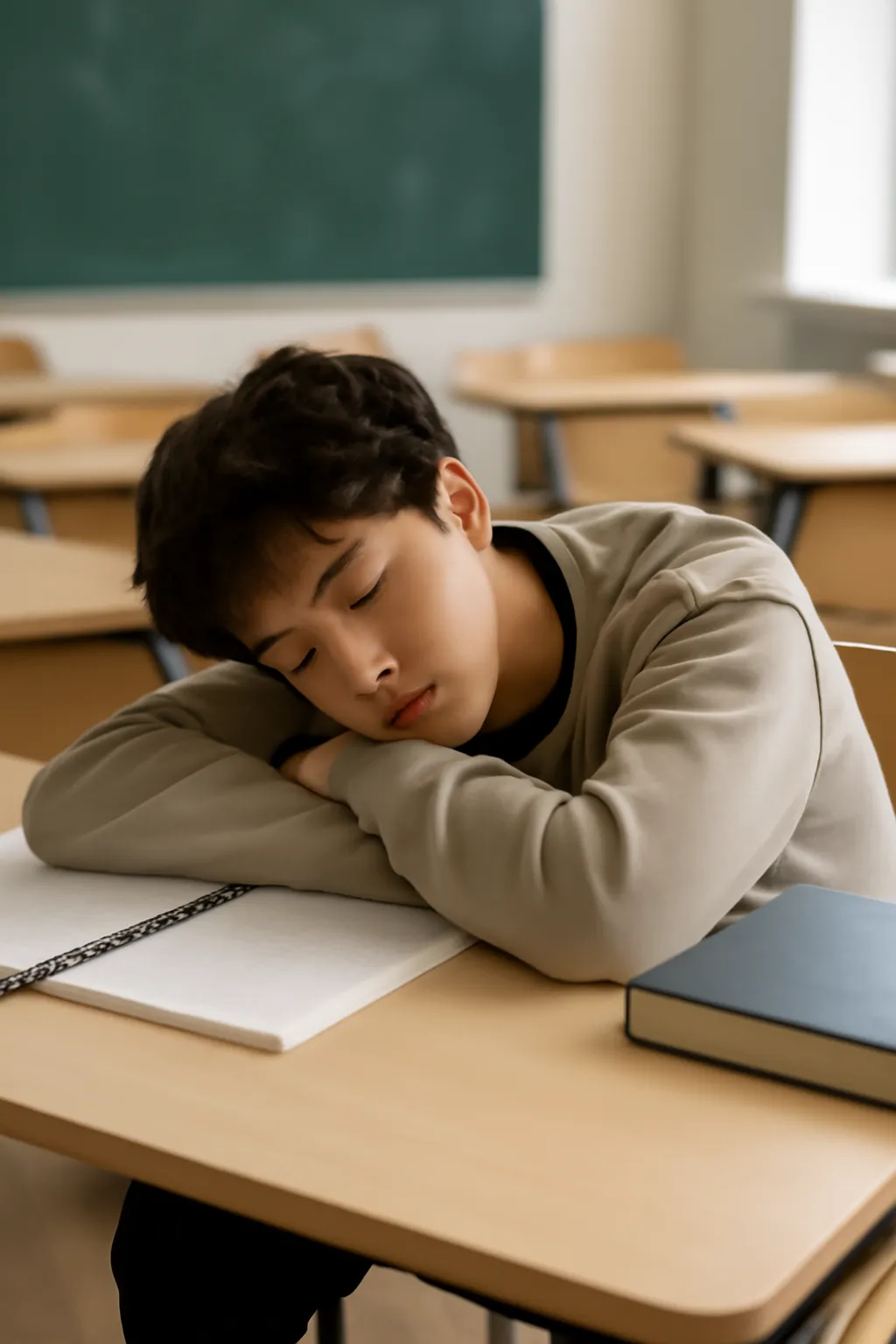How much sleep should a high school student be getting? Learn about the average sleep time statistics, the impact of less sleep, and why recommended sleep hours matter for academic success.
In today’s fast-paced world, high school students often find themselves juggling academics, extracurricular activities, and social commitments. As a result, sleep often takes a backseat. But just how much sleep do high school students need for their overall well-being and academic success? In this article, we’ll explore various aspects of high school student sleep time, focusing on statistics, the consequences of insufficient sleep, and expert recommendations.
The Average Sleep Time for High School Students
A recent study suggests that the average sleep time for high school students is alarmingly low. According to research from the Centers for Disease Control and Prevention (CDC), around 73% of high school students get less than 8 hours of sleep on school nights. The recommended sleep time for teenagers is 8-10 hours per night, yet many students struggle to meet this target due to the pressures of schoolwork, social media, and part-time jobs.
The Impact of Sleep Deprivation
Lack of sleep has a profound effect on a student’s physical and mental health. Shortened sleep durations are linked to lower academic performance, mood swings, and poor concentration. As one study pointed out, students who consistently sleep less than 6 hours a night perform significantly worse in exams compared to those who sleep the recommended amount.
One compelling case involves a student named Emily, who, due to early morning classes and late-night study sessions, averaged just 5 hours of sleep per night. Over time, her performance began to decline, and she struggled to stay awake during classes. When Emily adjusted her sleep schedule to 8 hours per night, she noticed a significant improvement in both her focus and overall grades.
Factors Affecting Sleep Time
Several factors contribute to the lack of sleep among high school students. These include academic stress, social pressures, and the pervasive influence of technology. With smartphones, laptops, and other gadgets at their disposal, students often find it hard to disconnect and fall asleep at a reasonable hour.
Learn more about high school student sleep statistics
Sleep Time Statistics: The Reality of Sleep Deprivation
Sleep deprivation among high school students has become a concerning trend worldwide, especially in countries like the U.S. and South Korea. Studies have shown that high school students often get as little as 5-6 hours of sleep on average.
Key Sleep Statistics for High School Students:
-
6 Hours of Sleep: About 30% of high school students report getting 6 hours of sleep or less on school nights. This is below the recommended amount and can lead to poor academic performance.
-
5 Hours of Sleep: Students who sleep only 5 hours a night face serious consequences, including cognitive impairment, memory issues, and emotional instability. Research has shown that students in this group are more likely to suffer from depression and anxiety.
-
Recommended Sleep: Experts suggest that high school students should aim for 8-10 hours of sleep for optimal health and academic success. Unfortunately, only a small percentage of students manage to meet this goal.
Real-Life Examples: The Effects of Sleep Deprivation
Take the example of Mark, a high school sophomore who reported getting only 4 hours of sleep during exam week. Mark’s results were disappointing, and he struggled to retain information during his studies. When he increased his sleep to 7 hours, he noticed an improvement in memory retention and overall mood.
In contrast, some students believe they can function on minimal sleep, not realizing the long-term consequences of such habits. Research has consistently demonstrated that sleep deprivation affects academic performance, emotional regulation, and even physical health.
Find more sleep statistics for students
Recommended Sleep Time: What’s Best for High School Students?
Experts agree that sleep plays a critical role in a teenager’s development. The National Sleep Foundation (NSF) and other health authorities recommend 8 to 10 hours of sleep for adolescents between the ages of 14 and 17. But the question remains: why is sleep so important for teenagers?
Why Sleep is Crucial for High School Students
-
Memory and Learning: Sleep is essential for consolidating memories and processing information learned throughout the day. Without enough sleep, students have difficulty retaining what they have studied.
-
Physical Health: Chronic sleep deprivation can lead to weakened immune systems, making students more susceptible to illness.
-
Emotional Regulation: Lack of sleep can cause mood swings, irritability, and heightened stress levels, affecting a student’s emotional well-being.
Creating a Healthy Sleep Routine
One way to help students achieve the recommended 8-10 hours of sleep is by establishing a consistent bedtime routine. This can include:
-
Setting a specific time to go to bed every night, even on weekends.
-
Limiting screen time at least one hour before bed.
-
Creating a quiet, comfortable sleep environment free from distractions.
-
Avoiding caffeine and heavy meals before bedtime.
By prioritizing sleep and following these guidelines, students can improve their focus, mood, and academic performance.
Check out expert tips on improving sleep habits for students
Conclusion: The Importance of Prioritizing Sleep
High school students face many challenges, but sleep should never be one of them. Adequate sleep is essential for both academic success and mental well-being. By understanding the importance of sleep, students, parents, and educators can take steps to ensure that sleep becomes a priority, not an afterthought.
As the famous quote by William Shakespeare goes, “A good conscience is a continual Christmas,” so too is a well-rested mind a gift for students. Ensuring sufficient sleep is an investment in their future, and one that yields rewards in academic achievement, personal growth, and overall happiness.






